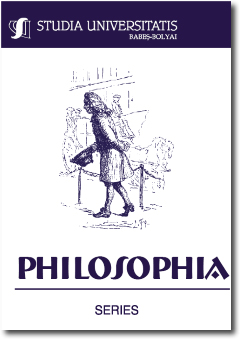STATE OF NATURE AND OTHER SAVAGERIES OF PAGANISM IN BRITISH AND AMERICAN PERSPECTIVE
STATE OF NATURE AND OTHER SAVAGERIES OF PAGANISM IN BRITISH AND AMERICAN PERSPECTIVE
Author(s): Francisc-Norbert OrmenySubject(s): Philosophy
Published by: Studia Universitatis Babes-Bolyai
Keywords: pagans; rebellion; Gothic; 18th century political philosophy; conservatism; slavery; savagery; aristocracy; bourgeoisie; disrupted imperialism; aporias of liberalism; public sphere; regression; mysticism.
Summary/Abstract: This study analyses the social and ideological causes that lead to the general adoption by the British and American cultural worlds of a “pagan” etiquette and of an exuberantly savage (tribal) imaginary when it came to relate its political visions to events and to the ideas agitating France in the 18th century. Hume and Burke, as well as their American continuators – Rawls and Nozick – interpreted the obsessive use of the concept of slavery by the French theorists as a forced “conceptual delusion” (our term), as an excessive rhetoric of dramatization of some social roles and statuses within a stable societal order. They dismissed both the French idea of social slavery and of the possibility of a return to a “state of nature”, constantly defending the need for a balanced judicial system. Explicitly or implicitly, they all considered the 18th century’s dream about a pagan revival a problematic philosophical fiction with no real support in the effective dynamics of the social world and preferred to use the methodology of the “thought experiment” in order to try to deconstruct, from a political point of view the over-romantic impetuses of the French philosophers of the time. In so doing they gave the final confirmation to one of the greatest methodologies in anthropology and in political philosophy – that of reading past minds by means of thought experiments – a radical form of theoretical hypostatization.
Journal: Studia Universitatis Babes-Bolyai - Philosophia
- Issue Year: 59/2014
- Issue No: 1
- Page Range: 49-64
- Page Count: 16
- Language: English

